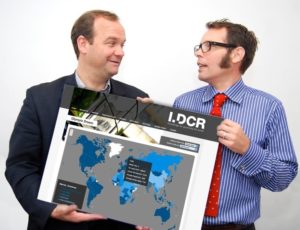
Is Olympic success linked with human rights?
Why do some countries always seem to strike Olympic gold, while others trail behind in the medals table? Is it down to their Olympian spirit, or their competitive edge? Not entirely, according to research by the Institute for Democracy and Conflict Resolution (IDCR) at the University of Essex, recently featured on the BBC website.
Research by the institute has shown the countries which do best in the games are likely to be wealthier, with higher levels of literacy and higher life expectancy. Although these are certainly not the only factors at work, there is a significant correlation between a country’s position on the UN’s Human Development Index (HDI) and its position on the medals table.
Professor Todd Landman, Director of the IDCR, believes spectators at the games will be watching a display not just of human skill, strength and agility, but also of the conditions under which many of the Olympic athletes have grown up and trained.
IDCR has been working with the web team at Mackman to create a series of web-based ‘Olympic Dream’ maps which allow users to see the relationships between Olympic success and deeper social or economic conditions. Paul Mackman, director at Mackman Group, says, ‘We’re proud to be partner of the IDCR. This is a truly innovative project, and we’re delighted with the results.’
Using data on economic development, political conditions and medal totals from the 2008 Beijing Olympics, users can look at global maps, create descriptive charts and analyse relationships between different indicators. Many of the big winners on the medals table are countries with large populations, like China and the USA. But even after population size has been taken into account, the relationship between development and medal totals is a significant one.
Read the BBC article on the Olympic Dream web-based maps.